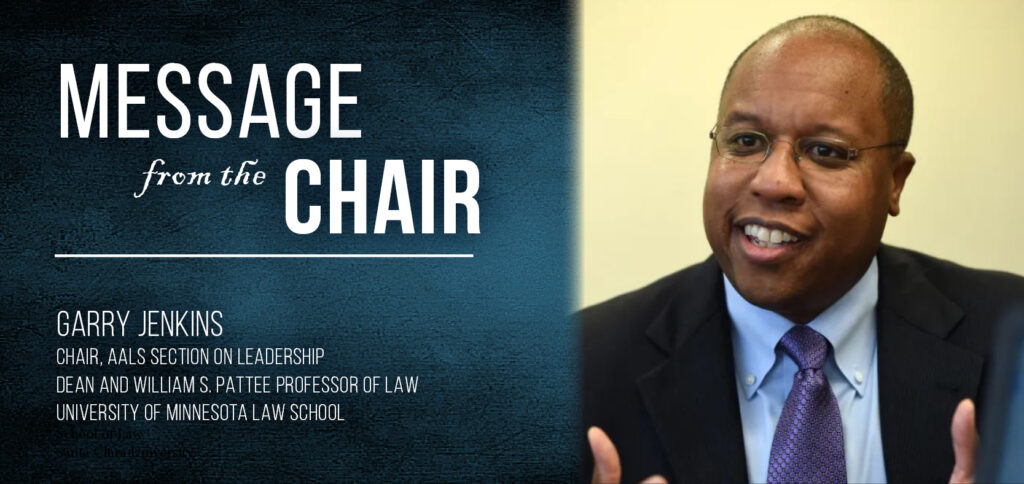WHAT ARE YOU WRITING?
Kathy Vinson:
I recently wrote a short article, The Great Resignation or the Great Joy in Higher Education: Lessons from the Pandemic that discusses how leaders in higher education can help their faculty rediscover their joy at work and prevent faculty burnout, the great resignation, etc.:
https://papers.ssrn.com/sol3/papers.cfm?abstract_id=4238036
Kathleen Elliott Vinson
Professor of Legal Writing
Director of Legal Writing, Research, and Written Advocacy
Suffolk University Law School
Michael Collatrella:
Leading Law Schools: Relationships, Influence, and Negotiation
91 University of Cincinnati Law Review No. ___ 2022
This article explores how quality relationships with one’s constituents, especially faculty, lie at the heart of successful law school leadership. Achieving meaningful institutional goals is a group endeavor, and a law school leader must have the skills and abilities to focus faculty energies and enthusiasms to a unified vison. To marshal those energies and inspire those enthusiasms, a leader must master the triumvirate leadership skills of (1) relationship building, (2) influential power, and (3) negotiation with faculty. If one is to be a successful leader in law school environments, formal or informal, one must accept the premise that the power to lead is one that law school faculty grants a person. https://papers.ssrn.com/sol3/papers.cfm?abstract_id=4086895
Michael T. Colatrella Jr.
Professor of Law
University of the Pacific, McGeorge School of Law
Brian Gallini:
Pandemic Leadership
University of Toledo Law Review, Vol. 52, 2021
This piece tells the story of my cross-country move to take on a first law school deanship amid a global pandemic. There is no shortage of literature about leadership outside the realm of academia. Indeed, there are a number of engaging books about leadership philosophies, styles, and guidance. But those materials are not tailored specifically to leadership roles within legal academia. Moreover, there is little scholarly literature advising deans on how to lead a law school. Unsurprisingly, perhaps, there exists even less literature advising deans on how to lead a law school during a global pandemic.
My hope for this piece is to expand the body of scholarship advising deans on how to lead a law school. This Article offers my early thoughts—first-year pandemic thoughts, to be exact—about the ways law school administrations can cultivate and maintain a strong culture focused on producing passionate and skilled lawyers. Part I tells the story of my transition from the University of Arkansas to Willamette University College of Law. Part II puts you firmly in the saddle of an administration tasked with learning to run a law school from scratch. Part III reflects on lessons learned from doing so.
https://papers.ssrn.com/sol3/papers.cfm?abstract_id=3890108
Brian Gallini
Dean & Professor of Law
Willamette University College of Law
Leah Teague:
Leadership is the answer for the changes to ABA Standards 303 and 508
Part 1: https://traininglawyersasleaders.org/2022/03/10/amendments-to-aba-standards-support-the-objectives-of-leadership-development-programming-part-1/
Part 2: https://traininglawyersasleaders.org/2022/03/15/amendments-to-aba-standards-support-the-objectives-of-leadership-development-programming-part-2/ Part 3: https://traininglawyersasleaders.org/2022/03/17/amendments-to-aba-standards-support-the-objectives-of-leadership-development-programming-part-3/
Leah Teague
Professor of Law
Baylor University School of Law
WHAT ARE YOU READING?
Kathy Vinson:
I’m reading the following 2 books:
Unraveling Faculty Burnout and
Global Lawyering
Brian Gallini:
Frances Frei & Anne Morriss, Unleashed.
Stephen Rispoli:
Grant by Ron Chernow
